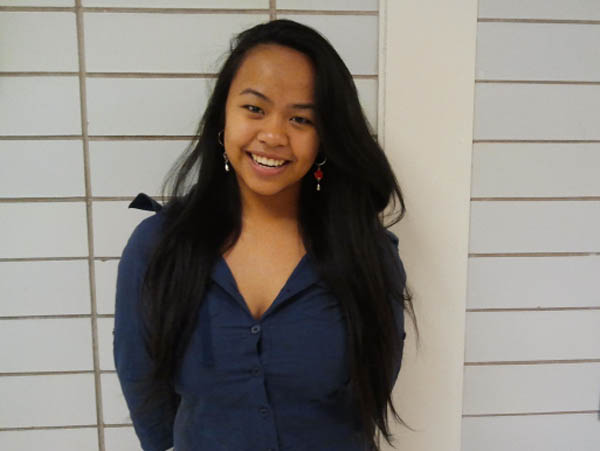Editors’ Note: This is the second in a series of features Niles West immigrants in celebration of International Weeks.
At the age of seven years old, Ruby Ladrido moved to Morton Grove, Illinois from Tabuk, Philippines. Entering her first grade classroom, she’s not familiar with what she sees: diversity. African-American, European, and Asian students populate the room. She sits down with the rest of her class, plays with her pixie hairstyle, and watches the rest of the children converse in a completely different language.
“I remember being extremely determined to nail the English language,” Ladrido said.
Junior Gretchen Sterba said she remembers Ruby’s first day in school.
“I remember her talking very slowly because she didn’t know English, and she always talked in third person. She’d be like, ‘Does Ruby understand this?’ She had the shortest hair, but for some reason I wanted to be her friend. Something about her interested me,” Sterba said.
With the advantage of learning the language at an early age, Ladrido was able to speak English fluently just a few months after her first day in American school.
“I used to be in ESL, and I loved [speaking English.] I learned quicker than most people thought,” Ladrido said.
Sterba reflects back on a time in first grade when Ladrido just getting used to the American way of life.
“She came to my church Halloween party and dressed up as a parakeet. We had a lot of fun together. She caught on to the English language pretty quickly,” Sterba said.
* * *
It’s ten years later, and Ladrido is now a junior at Niles West High School. She’s been involved in volleyball and gymnastics and has made plenty of friends. She might have changed a lot from when she first moved to the country, but she keeps herself grounded by remembering her living conditions in the Philippines.
“My life would have been a lot more complicated and harsh over there. I would have had to deal with the possibility of not having anything to eat, whereas here, everything is stable,” she said.
Considering that she no longer speaks her native tongue, many students may believe that she lives an utterly American lifestyle. Little do they know that Filipino traditions, morals and culture are evident in her personality, routines and habits.
“Being Filipino has taught me to put family first. After church always do that forehead thing for a blessing from elders,” Ladrido said.
In the Filipino culture, the act of making the back of an elders person’s hand touch a younger one’s forehead is a form of respect and a form of blessing. Filipinos are brought up to look up to their elders, and elders are believed to have a greater connection with God.
Ladrido’s diet is also very Filipino.
“I definitely only call something a meal if it has rice in it,” she said.
Even though she doesn’t live in the Philippines anymore, she still plans to visit her native land in the future.
“I still have a lot of family there and visiting makes me realize how [much] easier I have it here in the United States, ” Ladrido said.


